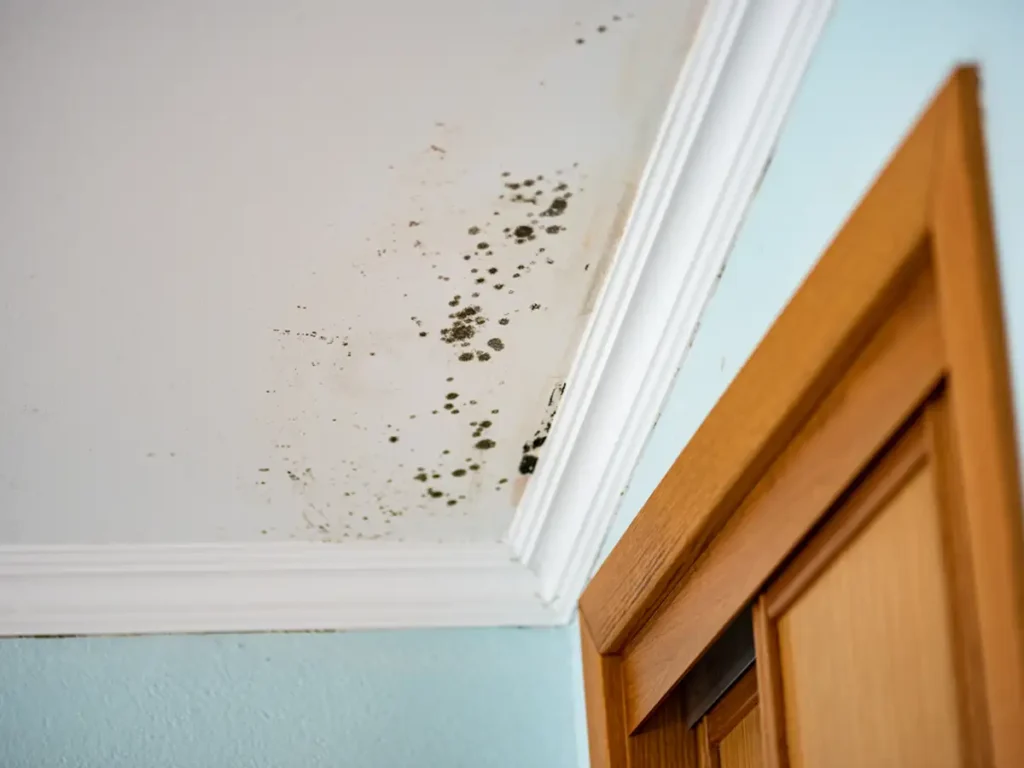Could mold in your home be making you sick?

We all know about mold the annoying fungus that thrives in damp environments, that’s often a common problem in most homes. Beyond its unsightly appearance and musty odor, mold can pose serious health risks. Most people are shocked to learn that the harmless-looking, lifeless spores in the corners of their homes can make them sick. So let’s get into how having mold in your home could make you sick and discuss preventive measures to maintain a healthy mold free living environment.
Allergic reactions
Mold releases spores into the air, triggering allergic reactions in susceptible individuals. Symptoms may include sneezing, coughing, itchy eyes, nasal congestion, and skin rashes. These allergic reactions can range from mild discomfort to severe respiratory distress, particularly in individuals with asthma or compromised immune systems. Prolonged exposure to mold spores can exacerbate allergies and increase the risk of developing new sensitivities.
Respiratory Issues
Mold spores can also cause respiratory problems, such as bronchitis and pneumonia. When inhaled, the spores can irritate the respiratory system, leading to coughing, wheezing, and shortness of breath. Individuals with pre-existing respiratory conditions are particularly vulnerable to these effects. Moreover, mold produces mycotoxins, toxic substances released as part of its life cycle, which can cause inflammation in the airways and compromise lung function.
The respiratory issues caused by mold spores are often minimal. But these symptoms are often exacerbated in those with pre-existing respiratory conditions. If there’s a family member diagnosed with respiratory conditions, keep them away from mold. Conduct regular checks to ensure the home has clean, fresh air.
Toxic Effects of Mold
Certain types of mold, such as Stachybotrys chartarum (black mold), produce mycotoxins that can harm humans. Prolonged exposure to these mycotoxins, whether inhalation, ingestion, or skin contact, can result in various symptoms, including fatigue, headaches, dizziness, memory problems, and even neurological issues. Although the exact mechanisms of how mycotoxins affect human health are still being studied, it is clear that they can have detrimental effects on various organ systems.
Increase vulnerability to infection
Mold can weaken the immune system, making individuals more susceptible to infections. The presence of mold in the environment can cause chronic inflammation, compromising the body’s ability to defend against pathogens. As a result, homeowners may experience frequent respiratory infections, sinusitis, or other illnesses. Individuals with weakened immune systems, such as older people or those undergoing medical treatments, are particularly at risk.
If a family member has constantly fallen sick, it may be a sign of a mold infestation. Investigate and get to the root of the problem.
Mold infestations in homes can be a silent threat, affecting homeowners’ health in various ways. From triggering allergic reactions and respiratory issues to causing toxic effects and increase infection vulnerability, mold can profoundly impact individuals’ well-being. What’s more? These spores are difficult to deal with. But timely identification, remediation, and moisture levels are crucial to preventing mold-related health problems and promoting a healthy living environment.







Have your say